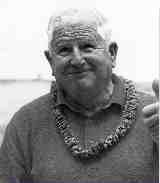"Rejoice With Those Who Rejoice"
continued from Home Page
It is hard to get inside someone else’s heartache—going there may cause
us pain too. It is not an easy place to go. We would rather stand a little
ways away and lob suggestions or advice to the wounded—keeping distress
nicely at arms-length. Now...we note that there are two
 admonitions given in the book of Philippians.
admonitions given in the book of Philippians.
The first, to “weep with those who weep,” is counterbalanced by “rejoice with those who rejoice.” Surprisingly, as we consider these two profound bits of advice, we may conclude that it is easier to approach the brokenhearted with genuine tears of our own than to wholeheartedly be filled with joy when our neighbor discovers oil on his wilderness property!!
Tragedy triggers sympathy and compassion for hurting ones. Another’s triumph brings forth jealousy—a primal human fault so readily aroused. Truly dancing for joy when success pours down on a peer, but not on us, calls for a supernatural effort to override our envy. It is sad to say, but another’s loss can seemingly turn out to enhance our own condition. Therefore, approaching someone’s calamity may not feel intimidating. But the windfall of good fortune, which is raining down on our neighbor, may turn the balance sheet of our life in a negative direction. “If he is getting ahead, then surely I am falling behind.” (I am venturing that most of us are keeping score in some way.)
 Twenty-five
years ago when our family lived in Michigan, my wife and I managed to
squirrel away enough money to take a trip to Hawaii. We were so excited
to be escaping our frigid state for the anticipated luxury of a week in
“paradise”. At the hospital where I worked, I discreetly mentioned the
dream vacation that was a dozen days off.
Twenty-five
years ago when our family lived in Michigan, my wife and I managed to
squirrel away enough money to take a trip to Hawaii. We were so excited
to be escaping our frigid state for the anticipated luxury of a week in
“paradise”. At the hospital where I worked, I discreetly mentioned the
dream vacation that was a dozen days off.
The reactions of friends were mostly “cognitive.” That is, they would ask what island we were going to, or what airline we were booked on, how long we were going to be gone, etc. Decent questions. All joyless! Then one physician responded with a hearty “Oh, hey, that’s fantastic! What a great thing to do.” That outburst tickled my soul deeply! Dr. Baker, that day, showed me how to celebrate with another person’s good news. The others asked questions (perhaps disguising their jealousy) to show their interest; the doctor danced with me.
The doctor read between the lines because I was not showing a lot of excitement about this expensive trip. I was a little self-conscious about it, maybe even apologetic; I did not seem to be dancing. He jumped behind the scenes and burst out with joy on my behalf. Often, that is what it takes.
Similarly, when my friend scored a “hole-in-one” a while back, he did not rush in, shouting and rejoicing. Instead, he simply told us what had happened. It was up to us to start the celebration for him.
 To
rejoice with those who rejoice, we first have to pay attention.
We need to hear their joy, even when it is delivered in a matter-of-fact
or even monotonous tone. A birth announcement of a grandchild may be told
matter-of-factly, disguising the enormity of thanksgiving held in check
by a modest new grandfather. A proper loving reaction calls for boisterous
congratulations and hearty slaps on the back—behavior way beyond what
the new grandpa himself exhibits.
To
rejoice with those who rejoice, we first have to pay attention.
We need to hear their joy, even when it is delivered in a matter-of-fact
or even monotonous tone. A birth announcement of a grandchild may be told
matter-of-factly, disguising the enormity of thanksgiving held in check
by a modest new grandfather. A proper loving reaction calls for boisterous
congratulations and hearty slaps on the back—behavior way beyond what
the new grandpa himself exhibits.
Modesty describes most folks. So when they “hit the jackpot,” ordinary human beings quietly send up their fireworks with only a small circle of intimates. Beyond that, triumphs, accomplishments, and victories only leak out and are quietly played down. It is for these that we must develop a finely tuned antenna to hear the big news the way it should be heard and strike up the band for a proper celebration.
 Recently
I shyly showed a friend a photo of a large sign in front of a bookstore.
My cautious approach came from the fact that the sign displayed, in
prominent letters, an announcement that included my name and that
I would be signing books in the store on the coming weekend. My reluctant
attitude came from experience that has taught me the risk of flaunting
one’s accomplishments. Sure enough, the response was a slight mocking
“Oh, we have a celebrity in our midst.” I immediately regretted taking
the photograph out of my pocket. I had wanted to share the tickle I felt,
but the needling reminded me how difficult it is to share joys.
Recently
I shyly showed a friend a photo of a large sign in front of a bookstore.
My cautious approach came from the fact that the sign displayed, in
prominent letters, an announcement that included my name and that
I would be signing books in the store on the coming weekend. My reluctant
attitude came from experience that has taught me the risk of flaunting
one’s accomplishments. Sure enough, the response was a slight mocking
“Oh, we have a celebrity in our midst.” I immediately regretted taking
the photograph out of my pocket. I had wanted to share the tickle I felt,
but the needling reminded me how difficult it is to share joys.
In the same vein, upon learning of the publication of a book I had labored hard on, another friend counseled that she sure hoped my success didn’t go to my head. She thought she was acknowledging a successful venture, but there was little joy-sharing trickling out of her warning. Human beings carry an almost ineradicable illusion in their core: Therefore, no matter who or what the accomplishment, the victory, the promotion or the acquisition, the person needs the caring, wholehearted celebration or congratulations of bystanders and friends.
No one is too small or insignificant to bring that kind of gift. Exaggerate! Stretch beyond your usual comfort level in expressing appreciation and giving congratulations on another’s behalf. If you do not genuinely feel the feelings, act like you do. The feelings will grow inside you. It is better to act your way to the right feelings than to wait for the feelings before acting. When you wait, you miss the opportunity to display the needed actions.
 When
hearts break, the need for support shouts clearly. Hard as it may be,
caring people reach out to give support and encouragement; they know that
support is needed.
When
hearts break, the need for support shouts clearly. Hard as it may be,
caring people reach out to give support and encouragement; they know that
support is needed.
Accomplishments, however, do not cry out in the same way. Those who are gifted in lovely ways or are champions and winners do not look needy—do not seem to need support. They may even appear above the rest of us. So it seems. But a caring community grows stronger when victories are shared and celebrated together. And the joyous—shy and modest as they may be—connect more solidly when rejoicers reach past the surface and embrace them with joy.
Some say that the hardest part of tragic circumstances is the loneliness of the journey. But those who move into joyous achievements say the same. Rare, they claim, are those who see and share their joy at a level that resonates positively. Accurately tuning into another’s good news is a fine art. Both ends of the scale, tragedy or triumph, open opportunities for caring folks to walk alongside, and sometimes dance!
That is love, God’s love.
Dr. James Kok is Director of Care Ministry for the Crystal Cathedral Congregation of Garden Grove, CA. He has been an ordained minister of the Christian Reformed Church of America for 35 years. He speaks extensively throughout the United States and Canada. His hands-on work as a pastor has led to a profound understanding of the issues and dynamics of personal grief and human suffering on which he has written and spoken at length.